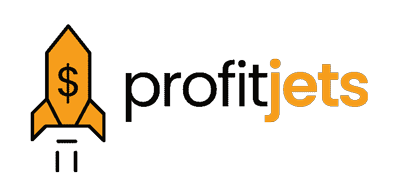As a business owner, keeping your finances organized and separate from your personal life is crucial. This is where business bank accounts offer dedicated spaces to manage your company’s income, expenses, and overall financial health. But with various options available, choosing the right account can feel overwhelming.
This guide explores the different types of business bank accounts, their key features, and how to select the best fit for your specific needs. Let’s dive in!
Table of Contents
Business Accounts: What are they?
Think of a business bank account as your company’s financial hub. It is a secure repository for your business funds, separate from your personal accounts. This segregation simplifies bookkeeping, clarifies tax reporting, and builds trust with investors and partners.
Importance of Business Bank Accounts for Small Businesses:
- Enhanced Credibility: Demonstrates professionalism and financial responsibility, potentially attracting more clients and investors.
- Simplified Bookkeeping: Separates business transactions, making record-keeping and tax filing smoother.
- Improved Security: Offers fraud protection and safeguards against personal liability if your business encounters financial difficulties.
- Convenient Features: Allows online banking, bill payments, payroll processing, and other tools to streamline your finances.
- Tax Benefits: Certain business expenses incurred through your account may be tax-deductible.
How to Open a Business Bank Account:
Opening a business bank account typically involves these steps:
- Gather Required Documents: Business license, EIN (Employer Identification Number), government-issued IDs, and business formation documents.
- Research and Compare Options: Consider available features, fees, minimum balance requirements, and other factors.
- Visit a Bank Branch or Apply Online: Provide the necessary documents and fulfill bank requirements.
- Fund Your Account: Deposit initial funds to activate your account.

Types of Business Bank Accounts:
Now, let’s explore the diverse landscape of business bank accounts:
Business Checking Accounts:
- Most common account type: Designed for frequent transactions like receiving payments, paying bills, and managing payroll.
- Features: Debit card access, online banking, check writing, bill payments, ATM withdrawals.
- Fees: Monthly maintenance fees, per-transaction charges, ATM fees.
- Ideal for: Businesses with frequent transactions and need for everyday financial management.
Business Savings Accounts:
- Earn interest on unused funds: Suitable for saving surplus cash for future investments or emergencies.
- Limited transactions: Often restrict withdrawals and transfers to maintain interest rates.
- Features: Online access, interest accrual, may offer tiered interest rates based on balance.
- Fees: Monthly maintenance fees may apply.
- Ideal for: Businesses building emergency funds, saving for future investments, or planning for seasonal fluctuations.
Money Market Accounts:
- Blend checking and savings features: Offer limited check-writing capabilities and higher interest rates than checking accounts.
- Minimum balance requirements: Higher than checking accounts, but offer higher interest potential.
- Features: Debit card access, online banking, check writing (limited), ATM withdrawals (limited), interest accrual.
- Fees: Monthly maintenance fees and transaction fees might apply.
- Ideal for: Businesses with moderate transaction needs and desire interest earnings on idle funds.
Merchant Accounts:
- Process credit and debit card payments: Essential for businesses accepting online or in-person card payments.
- Integrated with payment processors: Work with third-party processors like Stripe or Square.
- Features: Card processing capabilities, settlement services, fraud protection.
- Fees: Transaction fees, monthly fees, and potentially PCI compliance fees.
- Ideal for: Businesses accepting card payments to increase sales and customer convenience.
Certificates of Deposit (CDs):
- Fixed-term investments: Earn higher interest rates than savings accounts by locking funds for a specific period.
- Limited accessibility: Funds are inaccessible until the CD matures, incurring penalties for early withdrawals.
- Features: Guaranteed interest rate, varying terms and rates based on deposit amount and duration.
- Fees: Early withdrawal penalties and potential account closing fees.
- Ideal for: Businesses with surplus cash for a specific future need and can commit to the investment term.
Additional Considerations:
- Industry-specific needs: Certain industries require specialized banking options with tailored features.
- Scalability: Choose an account that can adapt to your future growth and evolving needs.
- Online banking features: Ensure the account offers convenient access and financial management tools.
- Customer service: Consider the bank’s responsiveness and support quality.
Conclusion
Choosing the right business bank account is crucial for your company’s financial health and future growth. By understanding the different types of accounts, their features, and your specific needs, you can make an informed choice that empowers your business to thrive.



